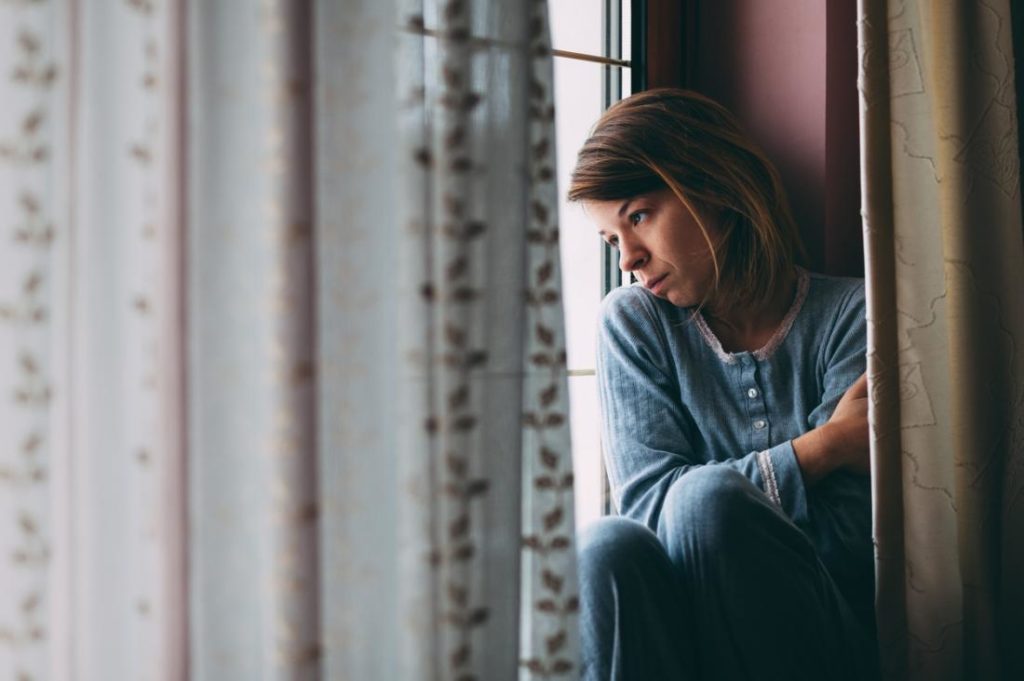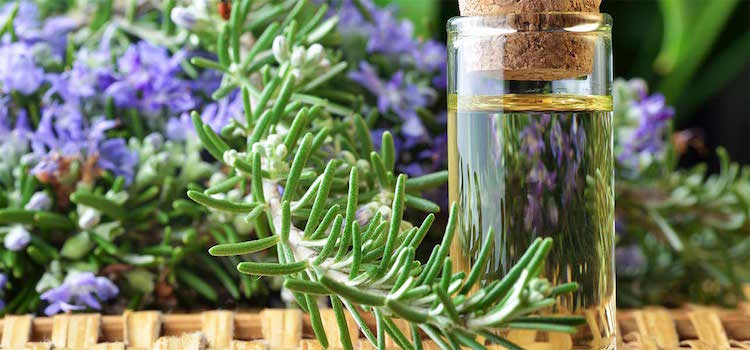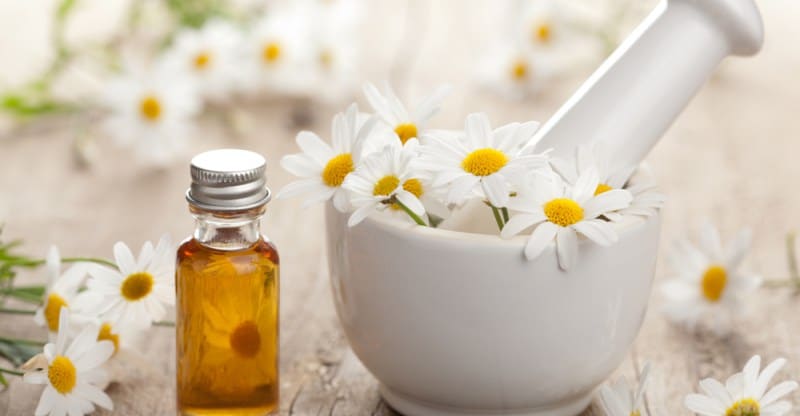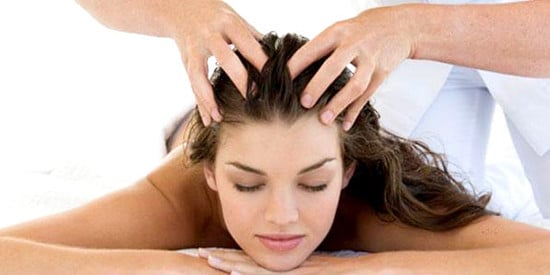I know what you’re thinking…
Why add essential oils to my hair when my scalp already produces natural oils?
You’re right.
Your scalp is blessed with glands that produce sebum (skin’s natural oils). But these oils are not enough to keep up with daily harsh weather conditions, excessive washing, and dust. Sebum is light and its main purpose is to keep your skin lubricated and hair waterproofed.
But guess what? There’s a long term natural solution to help you stop hair loss and enjoy new, strong, healthy and silky hair every day. It’s Essential oils!
Read on below and see the best essential oils you can start using on your strands to promote healthy hair growth, stop hair breakage, tame frizzy hair and relieve your scalp of harmful bacteria and dandruff.
But first, let’s look at what causes the highly dreaded hair loss.
What is hair loss?
Hair loss, also known as alopecia or baldness is the loss of hair on your body, especially the head. Men experience hair loss more often. In fact, 85% of men begin to notice their hair thinning out and shedding around the age of 50. You can experience hair loss as a result of heredity, medication or hormonal changes. But the good news is – it is reversible, thanks to medications and natural treatments like essential oils.
Causes of hair loss
There are various causes of hair loss. They include, but not limited to:
- Heredity: This is the most type of hair loss among both men and women. The main cause of hair loss is a condition known as male or female pattern baldness. It normally starts with a receding hair line in form of letter “M” in men and thinning of hair in women. If your family has a history of excessive hair loss, chances are high that you’ll suffer from hair loss as well.
- Hormonal Changes: Hormonal changes can occur to your body as a result of pregnancy, child birth and menopause.
- Stress: Ever been so stressed that you actually saw your hair fall out? It’s okay and perfectly normal. Stressful events in your life can also cause temporary hair loss.
- Medication: Some strong medications such as anticoagulants, gout medication, hormonal drugs and antidepressants can cause hair loss too.
- Hairstyles: Some hairstyles like cornrows, tight braids and hair extensions can cause a type of hair loss known as Traction alopecia. It is caused due to physical stress put on your as a result of excessive styling and pulling of hair.
Dangers and Side Effects of Hair loss
Did you know that you lose about 100 hair strands every single day? Yes, it’s true. But you probably can’t notice it because you have new hair growing out of your scalp daily as well.
Left untreated, hair loss can increase rapidly, leaving you with very little to no hair at all.
Some more effects of hair loss are:
- Low self-esteem
- Depression
- Anxiety
Hair loss is devastating and inevitable if it’s hereditary. That’s why it’s advisable to seek professional help from your doctor to stop your locks from falling out. To combat hair loss, you can also use Essential oils.

So what are the Best Essential Oils for Hair Loss?
Essential oils will end your hair loss worries.
There are various products in the market, but they come loaded with chemicals which do more harm to your hair, even though their results seem instant. Essential oils are all-natural making them free from adverse side effects.
Apart from boosting your hair growth, essential oils also have a calming effect on your senses and relax your nerves. They help in releasing stress which is a primary cause of hormonal imbalance- a natural trigger for hair loss
Essential oils may just be the miracle you have been looking for. Check out our best essential oils for hair loss below:
1. Lavender Essential Oil
Extracted directly from the Lavender tree, its heavenly scent has made it increasingly popular because of its soothing effect on your senses.
It prevents hair loss, moisturizes your scalp, and is excellent in controlling dandruff, fungal/bacterial infections, and scalp acne.
How to use:
The best way to use lavender oil is to massage it to your scalp to increase blood circulation, prevent hair loss and promote hair growth.
On the flip side, lavender oil can irritate your skin, cause allergic reactions, headache and nausea. It can be poisonous if taken by mouth and may not interact well with some medications. So consult your doctor or aromatherapist before using this oil.
2. Rosemary Essential Oil
Rosemary is one of the freshest oils around. Its essential oil is carefully extracted from its leaves. It has a minty and woody fragrance, giving you youthful earthly aromas all day long.
Rosemary essential oil prevents your hair from thinning and graying. It promotes blood circulation making it a perfect ingredient for stimulating your hair follicles and growth. It tones down sebum production making your scalp less greasy. It is also excellent for itchy scalp and dandruff relief.
How to use:
The best way to use Rosemary Essential oil is to massage it into your scalp, or add a few drops to your shampoo.
However, you should do a patch test first to avoid allergic reactions, because rosemary oil can cause vomiting, redness, allergic reactions for extremely sensitive skin.

3. Peppermint Essential Oil
Peppermint essential oil invigorates and stimulates your scalp giving you a healthy scalp and hair. Its main ingredient is the menthol which has a distinct refreshing and cooling sensation when applied to your scalp.
Like other essential oils, peppermint helps stimulate hair growth. It increases blood circulation around your scalp. When blood flows, it distributes and feeds your hair follicles with nutrients. Its cooling effect helps reduce inflammation, and its antiseptic properties help treat dandruff.
How to use:
Massage your peppermint oil onto your scalp. You can choose to create an effective mixture at home with carrier oils such as coconut oil or jojoba oil. Add two drops of peppermint to a tablespoon of carrier oil and rub the mixture onto your scalp. You may add a few drops to your shampoo or conditioner and use it as usual.
There are serious safety concerns about the use of peppermint oils on children under the age of three years. It can cause breathing complications, so consult your doctor before use on children. Even in adults, it can cause dizziness, nausea, confusion and muscle weakness when inhaled in large amounts, ensure that you dilute you follow dilution guidelines very well.
4. Chamomile Essential Oil
There are various types of chamomile essential oil, but the yellow-colored Roman Chamomile oil is specific for your hair care. The soothing oil has excellent anti-inflammatory properties.
Chamomile oil has more superficial benefits, unlike other oils. It helps soften your hair and gives it a shine. You can naturally use chamomile oil as a lightening agent if you want to change your look and do it more naturally.
How to use:
Rub chamomile oil into your scalp to relieve a scaly and itchy scalp which comes as a result of psoriasis, dermatitis or dandruff. It conditions and protects your hair from damage caused by environmental pollutants. It also lightens your hair color and renders a golden sheen to your hair.
Some studies have reported Roman Chamomile to have caused dermatitis in some individuals, so again – do a test on your hand before applying to the entire head to rule out any sensitivity and prevent allergic reactions.

5. Lemon Essential Oil
Did you know a lemon’s peel is full of tiny sacs which contain essential oils? Its aroma is intensely citrusy, fruity and fresh.
It is a drying oil ideal if you have an oily scalp. And, best for treating scalp acne and dandruff. It is an antiseptic and antimicrobial, which helps cure secondary infections which complicate acne and dandruff.
How to use:
To get rid of oily scalp and dandruff, Add 5-6 drops of lemon oil to your Jojoba carrier oil then rub it into your scalp. Wash/rinse it with a mild herbal shampoo after an hour.
Lemon is phototoxic. Avoid using it directly on your skin when you are going out into the sun.
6. Tea Tree Oil
Tea tree oil is enriched with a soft, sweet fragrance. It has a pungent camphorous scent and is highly medicinal.
I guess you’ve seen tea tree as an ingredient in most hair products. This is because of its amazing healing benefits when it comes to treating dandruff. It deeply nourishes and moisturizes the scalp, leaving you with a spotless, clean and hydrated scalp. Tea tree oil also helps tame frizzy hair, unclog hair follicles and gives your roots life.
How to use: Add 2-3 drops of Tea tree oil to 2tbs of sweet Almond carrier oil. Apply the blend to your locks and let it sit for 30 minutes. Then shampoo and rinse with lukewarm water.
Best Essential Oil Blend Recipe for Hair Loss
Thicker hair recipe
WHAT YOU’LL NEED:
- 30 drops pure rosemary essential oil
- 30 drops pure cedarwood essential oil
- 30 drops pure sage essential oil
- 1½ ounces jojoba oil
- 1½ ounces grapeseed oil
DIRECTIONS:
- Pour base of jojoba and grapeseed oils into jar.
- Add 30 drops of cedarwood, rosemary and sage.
- Mix the solution well by placing the lid on the jar, and shake vigorously.
- Apply generously and massage into scalp and hair once a day or 3 times a week.
- Leave in hair for at least 20 minutes. You can also apply before bed and leave in overnight
- . Shampoo, rinse and style as usual.
- Enjoy your new thick healthy hair!
How to Use Essential Oils for Hair Loss
There are three ways you can use essential oils. These are topical, ingestion and inhalation. But, for hair loss let’s focus on topical use.
1. Topical use
Topical use means applying essential oils directly to your hair, skin or any other part of the body. It’s quickly absorbed and spread throughout your body.
So how do you use essential oils topically when treating hair loss? Here’s how to do it:
- Add a few drops to your conditioner or shampoo and lather as usual. Use essential oils consistently at least for six months or until you achieve results.
- Dilute your essential oil in aloe vera and add to a spray bottle, then generously mist your hair. You don’t have to rinse your hair after spraying.
- Dilute essential oils in a carrier oil and use it as a leave-in deep conditioning treatment. You can wash the hair after an hour or overnight. Sweet almond and coconut oil work well for leave-in conditioning.
2. Scalp massage
Helps reduce the symptoms of psoriasis, dandruff and stimulate the scalp for hair growth.

This is how you do scalps massage with essential oils:
- Part the hair and apply your favorite essential oil to scalp sessions.
- Press your fingers firmly onto the scalp, moving the skin across the skull. Caution! Do not move your fingers across the scalp.
- Allow the oil treatment to stay for at least an hour before washing/rinsing out.
Essential oil Safety
Essential oils are highly concentrated. Therefore, you must take caution when applying them.
- Always dilute every essential oil with a carrier oil before using it. It comes in high concentration and can damage your scalp or hair.
- Always start slow despite the method you are using. Start with few drops and gradually add more with time. In fact, less is more.
- Some oils may be more irritating to the skin, due to their potency. In case the irritation occurs, immediately apply pure vegetable oil to the affected area to dilute.
- The amount of dilution needed for an essential oil depends on its strength. So, always read the label for directions of each oil before use.
- Avoid putting essential oils in ears, eyes and other areas of sensitive skin.
More ways to Stop hair loss
It can’t go without saying that lifestyle strategies (like great nutrition, exercise, and low- stress) are essential for getting the beauty results that you want to see – including a healthy head of hair! Find below more tips to stop hair loss other than essential oils:
Avoid hairstyles which pull your hairline
Some hairstyles such as cornrows, braids, ponytails or any other can pull the small hairs that make up your hairline causing hair loss.
When you need to put your hair up in a ponytail, ensure your hair is not entangled and pulling it out when removing the ponytail.
Do away with hair tools which use high heat
Heat causes the bonds within the hair strands of your hair to fracture, causing brittle hair to break and fall out.
If you want to straighten or curl your hair, do not leave the iron on one area for too long. Move the straightener or iron every ten seconds. If you hear a sizzling sound, then that is an indication that the heat is too high and burning your hair.
Always let your hair dry naturally. However, when you want to use styling tools, make sure to use heat-protecting sprays to lessen the effects of heat on your hair.
Chemically processing your hair can be harmful
The same way heat is detrimental to your hair, so are various chemical treatments. Chemicals used to bleach, straighten or lighten your hair can damage hair shaft leading to hair loss.
It is advisable to stick to your natural hair, especially if you are already experiencing thinning or hair loss. Chemicals will only make it worse.
If you regularly use chemicals, then make sure you treat your hair as often, with a deep conditioning treatment at least every week.
Mind your diet
Eat food high in minerals and vitamins such as zinc, iron, vitamin B12. Such vitamins revitalize thinning strands. Include lots of leafy greens, beans, nuts, fish and lean meat. If this is difficult for you to do, then consider dietary supplements to cover what you lack in your diet.
Use products specific to restoring hair growth
Many companies are creating products aimed at restoring hair growth. Such products contain numerous minerals and oils that aid in hair growth and destroy bacteria which cause hair breakage and loss. They improve blood circulation to the scalp and much more.
Visit your doctor
Consult your doctor on some of the over-the-counter medications you can apply. Medication stimulates hair follicles and promotes regrowth within six months. If you find six months too long, you can use hair-thickening sprays in the meantime. It coats the existing hair and gives it the appearance of a more voluminous look.
Extra tips for you
It is essential to choose the right carrier oils to use along with your choice of essential oil. Below are some carrier oils you can consider.
- Dry and damaged hair– use olive oil, jojoba oil, and extra virgin oil.
- Hair growth– use castor oil, sweet almond oil, olive oil and grapeseed oil.
Wrapping it up!
Remember, “Life isn’t perfect, but your hair can be.”
I hope this information inspires you to start using essential oils in your regular hair routine. Every essential oil will help your hair grow strong and healthy in many ways. Try out our favorite essential oils for hair loss today!
Wondering what brand to buy?










